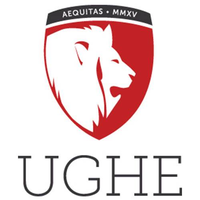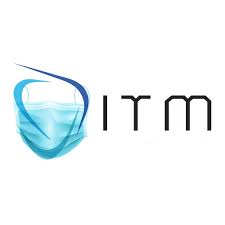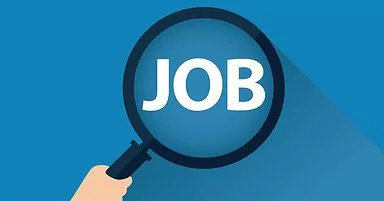Location: Any of MEESA offices, 110, KE
Company: Plan International
The Organisation
Plan International is an independent development and humanitarian organisation that advances children’s rights and equality for girls.
We believe in the power and potential of every child. But this is often suppressed by poverty, violence, exclusion and discrimination. And it’s girls who are most affected.
Working together with children, young people, our supporters and partners, we strive for a just world, tackling the root causes of the challenges facing girls and all vulnerable children.
We support children’s rights from birth until they reach adulthood. And we enable children to prepare for – and respond to – crises and adversity. We drive changes in practice and policy at local, national and global levels using our reach, experience and knowledge.
We have been building powerful partnerships for children for over 80 years, and are now active in more than 70 countries.
Role Purpose
This is an opportunity to grow Supply Chain performance and expertise in countries where Plan operates and evaluate impact of our support to Countries, as much as strengthening the Global Hub systems that enable best in class Supply Chain management in Countries.
The Supply Chain Specialist acts as a Country Business Partner for all global Supply Chain projects’ implementation but is also the main point of contact to drive regional Supply Chain excellence and strategies appropriate to context. She / He can deliver strategic inputs and directions to Country Offices.
This is a pivotal role in developing Supply Chain awareness and efficiency in a regional pool of Countries, driving processes and systems improvement as much as ensuring that adequate capacities and capabilities are in place within our Country Offices. To drive this, the Supply Chain Specialist is strongly engaged with Countries’ staff to ensure alignment, compliance and performance in systems application and usage.
Dimensions of the Role
Supply Chain management in the scope of this position will include:
- Technical processes across Operational Planning, Procurement, Assets, Inventory and Warehouse Management, Distribution, Fleet, Gifts in Kind in both Humanitarian and Development contexts
- Systems usage support and development (tools & templates, procedures, policies)
- HR structure definition in Country Offices
- Staff capacity building
The postholder must have the ability to strategically engage and orientate Countries towards continuous improvement, realigning processes and systems, supporting the definition of appropriate HR structures, quantitative performance management through the usage and analysis of information systems (either Excel tools, SAP or ERP), in the aim to level all his/her Countries from the portfolio at the same maturity.
This role will give the post holder an opportunity to engage regularly and for extended periods of time, with country office and programme unit staff across the functions described above. This will be in both an emergency response context and in a gap filling, project development or management role during non-emergency periods. There will also be opportunities to support key projects being undertaken by the Global Logistics and Procurement Team.
Budgets – The postholder may have budgetary responsibility when deployed to an emergency response or gap filling role.
Staff – The postholder may be given line management and leadership responsibility of logistics and procurement operations during an emergency response or gap filling role.
Stakeholder Engagement – Internally, the postholder will engage across functional and geographical boundaries at an operational and tactical level. Externally there will be engagement within and outside the sector to further Plan’s L & P operational objectives, including INGOs, UN agencies, partners and suppliers.
Geographical boundaries: The Supply Chain Specialist works with a regional portfolio of Countries in Middle East, Eastern, Southern Africa where Plan operates. Our current operations in this region are in Zimbabwe, Zambia, Mozambique, Malawi, Rwanda, Tanzania, Uganda, Kenya, South Sudan, Somalia, Sudan, Ethiopia, Egypt, Lebanon and Jordan.
Accountabilities
Country Business Partner
- General management and coordination
- Build a strong and trustworthy relationship with the Logistics and Procurement Teams in Countries, up to the Director of Operations and Country Directors, seeking engagement and partnership
- Be a business partner for a portfolio Country Offices, supporting Supply Chain management remotely from the Global Hub, but also through regular Country visits
- Strengthen relationships in between Country Offices and the Global Hub, acting as a mentor to the Logistics and Procurement Managers in Country Offices
- Strongly engage with Country Offices through regular calls, aiming to continuously deep dive into Supply Chain management processes, successes and challenges, so appropriate support can be offered either individually or through regionally / globally developed solutions, and best practices shared among the Community
- Focal point for Supply Chain operations troubleshooting in Country Offices, be a Technical advice and support to countries across all areas of logistics and procurement, whether projects are self, or partner implemented.
- Work with Country management and ensure proactive identification of fraud and risk in the Countries’ Supply Chain, either remotely or during Country visit, and employing mitigation strategies
- Ensure up to date information on Country Structure and Supply Chain is provided to the Team and management
- Operational support
- Operational support is given within a framework of continuous evaluation of all the Supply Chain areas of a CO, deep-diving into deep rooted issues and ensuring CO is empowered to deliver sustainable recommendations
- Deploy to give high level technical input, advice and guidance on project start-ups for new/complex/high risk projects (e.g. Fleet disposal and renewal, technical procurement and contracting)
- Dedicated resource for project implementation, new systems and change process roll out to support embedding and transition into business as usual operations
- Provide surge capacity for annual processes such as operational planning reviews, annual plans and budgeting, stock reconciliations, asset reviews and fleet analysis as much as audit investigations where necessary
- Gap fill critical logistics and procurement staffing gaps
- Capacity building
- Support staff selection and recruitment processes, as much as onboarding and induction
- Actively engage in the development and coordination of Regional Community of Practice, supporting the development of agenda and running the sessions
- Continuously upskill Countries’ staff, engaging them in developing solutions to their Supply Chain challenges
- Deliver capacity building and training through the Community of Practices, micro learning, workshops, webinars or in-country training, as much as using the L&P Planet page to share appropriate information, Workplace or any other digital platform
- Support the L&P Team in rolling out necessary systems in Country Offices, as much as advising on appropriate methodology to do so
Supply Chain excellence and compliance
Be a Supply Chain regional expert and focal point for a regional pool of Countries
- Map, assess, control and support improvement of Supply Chain processes adherence in Country Offices, using a structured Supply Chain evaluation framework for either Emergency or Development projects
- Develop and maintain a Country coordination and knowledge management system, ensuring a feedback mechanism from Country Offices is in place, enabling proactive identification of gaps and risks
- Proactively report on ongoing activities (country / region), challenges, successes to a varied range of stakeholders, as much as a delivering a regional overview and identification of strategic development
- Processes and systems must be in place in every Country Office, and as per global guidelines and policies, using appropriate and standardised assessment tools and feedback mechanism
- Supply Chain evaluations and monitoring tools are used to continuously improve current processes and systems
- Provide workforce planning and for restructuring of teams to meet current and projected business needs in Country Offices
- Support in job profile development, technical testing, development and validating to enable appropriate Supply Chain staffing in Country Offices
Emergency preparedness and response
Remotely or during deployment, the Supply Chain Specialist ensures emergency response is in line with policies and procedures, compliant with donor regulations and sustainable for post emergency. He / She reviews the appropriate definition and improvement of ER management systems, analysing and addressing gaps as much as supporting the appropriate HR capacity:
- Operational management:
- Provides functional leadership and support within emergency response settings, including the assessment, design, start-up, budget management, and implementation of emergency supply chain activities for multiple projects.
- Provides rapid and high-quality technical input in project operational planning, enabling fast and effective delivery to meet humanitarian needs, as well as ensuring that they are in line with donor guidelines and operations manual regarding implementation and reporting
- Rapid response workforce planning including recruitments, intensive training and situational, supportive management.
- Lead and/or oversee the rapid scale of procurement activities including the identification of international and local sourcing options, management of downstream supply pipeline, contracting of goods, services and works suppliers, and liaising with Global Hub procurement team and whilst always providing assurance, implementation and appropriate controls.
- Provide oversight, coordination and direction of
- inventory and warehouse management across multiple projects including GIK management which may include setting up of temporary warehouses and transit hubs, renting of warehousing space, contingency stock management and the receipt of donations.
- Fleet management and transport operations for emergency response including co-ordinating with existing country office operations to identify needs, acquire and utilise a variety of modes to meet the emergency response requirements needs safely and effectively.
- asset management for all emergency response assets including; donor liaison, disposal plans asset verification, compliant purchasing.
- office and staff accommodation, and other premises in fast changing and volatile environments.
- emergency response distributions, including multi-partner planning, site set up, security, local authority liaison, and material resource planning.
- Coordination and reporting including Logistics Cluster engagement and civil-military liaison in an emergency response, as much as collaboration with other response team members (e.g. market assessment and infrastructure/supply chain assessments
- Sustainability of operations
- Deploy to conduct real time evaluations as needed
- Review of end-to-end emergency response processes: map and assess supply chain emergency preparedness and response capability (HR, systems, operations), analysing gaps and recommending for measured improvement, supporting implementation of those.
Team support
- Support the L&P Team in GH in developing fit for purpose systems and training materials
Key relationships
- Regional Directors, Country Directors, Country Director of Operations, Country Logistics focal points
- Works closely with the Global Senior Supply Chain Manager in the GH
- GH L&P Team members: other SMEs and Systems Lead, to ensure appropriate large-scale support to Country Offices and continuous improvement of systems and tools
- Regional Hub DRM Team members
- Global Hub Operational Support Departments
- External Partners: Logistics Cluster, UNHRD
Technical expertise, skills and knowledge
Essential
- English speaking, additional language from the region is an added value (Swahili, Arabic)
- Experience in strategically coordinating and mentoring a portfolio of Countries
- Strong capacity in Excel, Word and Power Point
- Strong analytical skills, problem solving, data driven, and solutions oriented
- Performance and continuous improvement oriented
- Autonomous, you are proactive in defining and suggesting of areas of improvement
- Strong negotiating and influencing skills to achieve operational outcomes, applying a breadth of approaches, styles and techniques to achieve desired outcomes.
- Proven interpersonal skills (role model in motivating, developing and supporting others), including performance and change management
- Effective communicating and collaborating across cultural, geographical and structural boundaries, engaging positively and constructively with colleagues.
- Strong project management and organisational skills results oriented and comfortable making decisions and taking appropriate risks.
- Ability to build and maintain strong working internal and external relationships and represent Plan in a professional and competent manner
- Experience of leading emergency response supply chain function(s) at a country level, in disaster response contexts.
- Experience in start-ups and implementation of donor grant projects, knowledge of donor rules and regulations.
- Experience and knowledge of humanitarian Supply Chain management, with a technical background across all aspects of supply chain management: Planning, sourcing, procurement, assets, inventory / GIK & warehousing, fleet, logistics, distribution, staffing.
- Experience of contributing to market and rapid needs assessments, contributing to emergency response and project plans.
- Knowledge and experience of risk and fraud identification and management, including short- and long-term mitigation strategies.
- Experience of delivering logistics and procurement training in a variety of methods.
- Ability to work and provide effective leadership in complex and stressful situations, equally comfortable working in leadership, management and hands-on roles in rapidly changing contexts.
- Knowledge and experience of working with an ERP (e.g. SAP) or other supply chain management IT solutions would be an advantage.
- Demonstrable understanding of, and commitment to humanitarian principles, humanitarian response work and child protection standards.
- Demonstrable understanding of, and commitment to, equal opportunities, gender and diversity.
Desirable
- One additional Plan language to a working level would be a strong advantage (e.g. French/Spanish).
- Knowledge and/or experience of non-traditional, non-direct supply chain delivery modalities, including working with local partners and working with markets and cash-based delivery would be an advantage.
Plan International’s Values in Practice
We are open and accountable
We create a climate of trust inside and outside the organisation by being open, honest and transparent. We hold ourselves and others to account for the decisions we make and for our impact on others, while doing what we say we will do.
We strive for lasting impact
We strive to achieve significant and lasting impact on the lives of children and young people, and to secure equality for girls. We challenge ourselves to be bold, courageous, responsive, focused and innovative.
We work well together
We succeed by working effectively with others, inside and outside the organisation, including our sponsors and donors. We actively support our colleagues, helping them to achieve their goals. We come together to create and implement solutions in our teams, across Plan International, with children, girls, young people, communities and our partners.
We are inclusive and empowering
We respect all people, appreciate differences and challenge inequality in our programmes and our workplace. We support children, girls and young people to increase their confidence and to change their own lives. We empower our staff to give their best and develop their potential.
Physical Environment
When not deployed, duty station will be in one of the MEESA countries. The role requires up to 60% travel to other countries in the region. Contract is local under local terms and conditions of employment.
Level of contact with children
Mid contact: Occasional interaction with children
Location: Any one of MEESA countries
Type of Role: Fixed Term (3 years)
Reports to: Regional Finance Manager
Grade: E
Closing Date: 19th June, 2020
Early application is encouraged as we will review applications throughout the advertising period and reserve the right to close the advert early.
A range of pre-employment checks will be undertaken in conformity with Plan International’s Safeguarding Children and Young People policy.
As an international child centred community development organisation, Plan International is fully committed to promoting the realisation of children’s rights including their right to protection from violence and abuse. That means we have particular responsibilities to children that we come into contact with.
Plan International believes that in a world where children face so many threats of harm, it is our duty to ensure that we, as an organisation, do everything we can to keep children safe. We must not contribute in any way to harming or placing children at risk.
Equality, diversity and inclusion is at the very heart of everything that Plan International stands for. Our organisation is based on a culture of inclusivity and we strive to create a workplace environment that ensures every team, in every office, in every country, is rich in diverse people, thoughts, and ideas.
We will provide equality of opportunity and will not tolerate discrimination on any grounds. We foster an organisational culture that embraces and exemplifies our commitment to gender equality, girls’ rights and inclusion while supporting staff to adopt good practice, positive attitudes and principles of gender equality and inclusion.





More Stories
2 Job Opportunities at University of Global Health Equity (UGHE)
5 Jobs Opportunities at ITM Africa Ltd
Senior Human Resources Officer